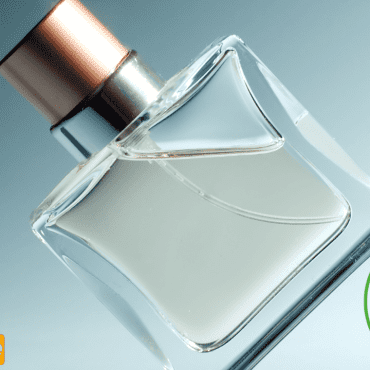Everyone has mixed oil with water in their grade schools. You must have experienced that oil sits on the water and does not get mixed in it. CBD oil has the same reaction. CBD is compatible with water when it is in water-soluble products like nanoemulsion, liposomal, and microemulsion. The CBD does not truly dissolve in water, but water-soluble CBD helps unlock the cannabinoid’s potential by making it more effective and versatile.
What is water soluble CBD?
CBD molecules manipulate in water-soluble formulations that dissolve better in water. It is wrong to use this term because CBD molecules actually do not get dissolve fully, even in water.
“It isn’t that the chemical composition of CBD is changing to be more soluble in water, because then it wouldn’t actually be CBD anymore, but CBD can be packaged in a more easily absorbable vehicle,” explained Matthew Halpert, Ph.D. Halpert is a lecturer in the Department of Pathology and Immunology at Baylor College of Medicine and a CBD researcher at Medterra, a CBD product manufacturer.
CBD bioavailability:
It is extremely important to understand what CBD bioavailability is if you really want to have maximum benefits of water-soluble CBD. Bioavailability is basically the quantity of any substance which gets into the bloodstream. If you use CBD in oil form, its impact will delay because it resists absorption into the bloodstream.
The first pass effect is another phenomenon that limits CBD from reaching into the bloodstream. The compound’s concentration is greatly reducing before it can circulate throughout the body’s system because it can’t progress past the liver when ingested as an oil. This reduction in concentration also results in a decrease in bioavailability.
How is water soluble CBD made?
The vacuum bubbles in CBD molecules are creating by ultrasound. This procedure causes them to implode then they break down into smaller droplets.
Liposome:
Liposomes are a potent way of delivering nutrients to the body. With liposomal CBD, the CBD molecules surround to or attach to fat. Once the liposome reaches its destination and fuses with the cell, it releases the CBD. Liposomal CBD droplets measure between 100 and 5,000 nanometers.
Nanoemulsion:
Nanoemulsions atomize CBD molecules even further, making them easier for the body to absorb. Smaller drops create a larger surface area to interact with the body’s tissues and enzymes. The average size of a droplet of nano-emulsified CBD is 25 nanometers. Nanoemulsions are usually a mix with penetration enhancers to help spread the CBD further. Ingest either orally or topically, with uptake occurring almost immediately after administration. This should result in higher potency and faster onset of action for lower doses.
Microemulsion:
CBD microemulsions are also available but are less common. Microemulsion droplets measure between 100 and 5,000 nanometers, which means they can penetrate a larger surface area, but they require the use of surfactants to dilute the compound. Microemulsions require ten times as many surfactants as nanoemulsions. A surfactant is a substance that reduces the surface tension of CBD oil, increasing its ability to spread and disperse. Less is more for surfactants in products that will be ingested, which is why nanoemulsions are more popular.
The science behind water soluble CBD:
Liposomes and nanoemulsions are researched well. “There are decades worth of scientific research that provide evidence of liposomes increasing the bioavailability of molecules not easily taken in by the body,” Halpert said.
But the research on both CBD liposomal and CBD nanoemulsions is still in its early stages. A review was published in Molecules back in 2018. This review found that the nature of CBD rendered it a good candidate for nanotechnology drug delivery strategies.
Another pre-clinical study back in 2019 examined the efficacy of CBD nanoemulsion. This study was conducted on rats. Found that the nanoemulsion improved bioavailability by about 65% and accelerated the onset of action of the CBD.
Does CBD oil have to be water soluble?
CBD has the same benefits even if you are applying it in the form of oil. CBD oil is especially for people who like to take their supplements similarly. However, the bioavailability of CBD water-soluble does not exist.
How long water-soluble CBD stays in your system?
It totally depends on the degradation rate and receptivity of the individual to the product. “The jury is still out on how long water-soluble CBD can remain in the body,” Halpert said.
There is no certain answer but it is true that the highest quality, third-party tested water-soluble CBD has great efficacy. Because of its increased bioavailability, a small dose of it works wonders.
How can water soluble CBD be taken?
This form of CBD is extremely versatile. We can have it in solid. Liquid and in powder form. It is also available in nasal spray, topicals, and oral form. None can actually detect nano emulsified in drinks and beverages because it is translucent. You can also add it to your daily food.
How is water soluble CBD isolate made?
When CBD molecules go through complex procedures of extraction, CBD isolate is created. We can have CBD isolate in crystal form. No extra terpenes or any cannabinoids are added to this final product. Nanotechnology is needed for CBD isolate to be more compatible with water. “Water-soluble CBD isolate is the same CBD isolate as before, but it just goes through this extra process of packaging on the nano-scale,” Halpert said.
Recommended Products: MAGICAL BUTTER MB2E BOTANICAL EXTRACTOR


Add Comment